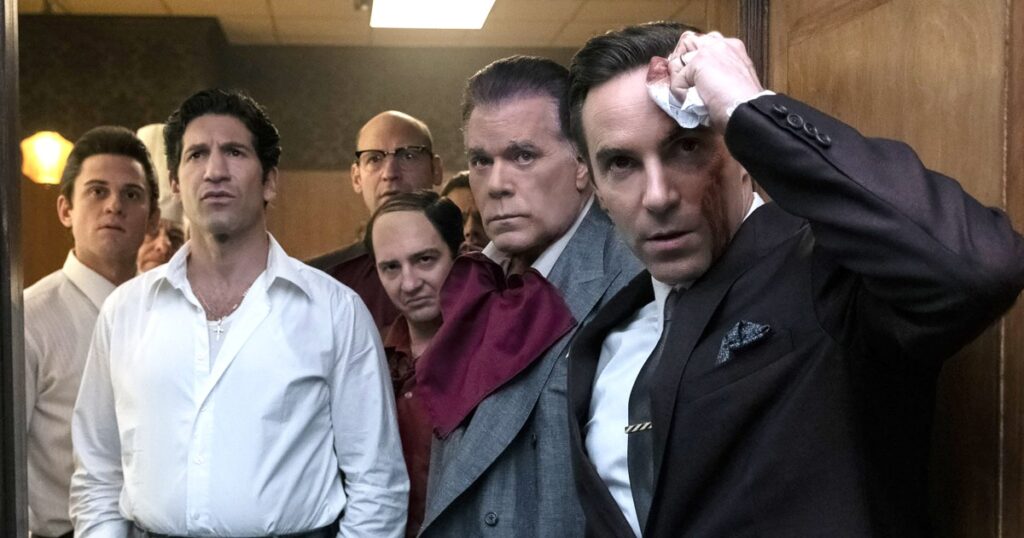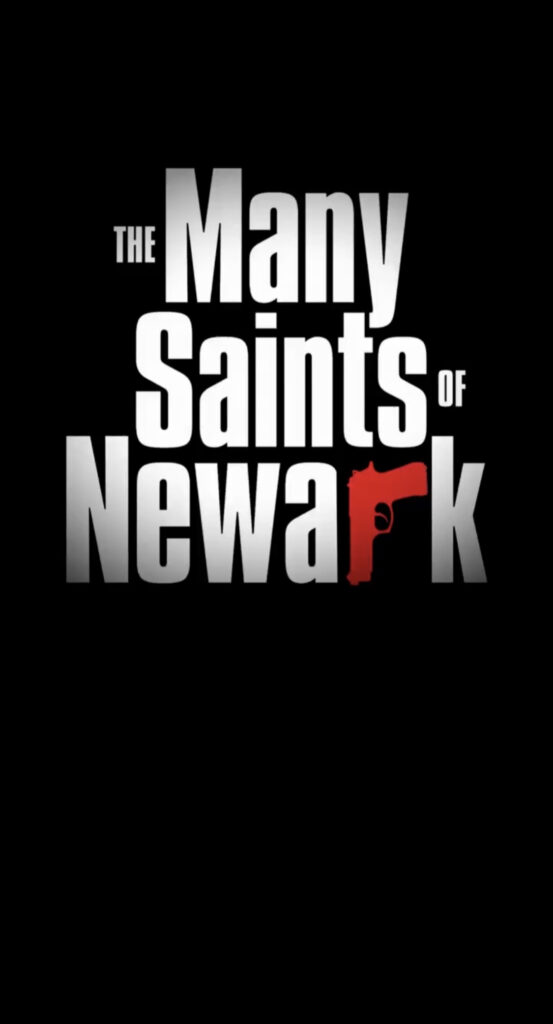As a huge Sopranos fan, I was disappointed by the movie. What made The Sopranos so great was the organic character development where you’d see beefs and alliances develop between characters over the entire season, snappy dialogue, and motifs/devices that injected a touch of the supernatural/fantastic (think Chrissy’s crow, the ghouls following Paulie around, Tony’s many dreams) while also helping to explore the complex psyche of Tony Soprano.
The Many Saints of Newark is not that. In many ways, it feels like a parody of the show – many have already commented about the cartoonish characterization of the young Silvio (his first appearance in the film is cringeworthy, and borders on parody on the level of an SNL skit), Paulie, Pussy, and Junior (how many times does Junior say “Your sister’s ****”?) which often feel jarring in the moment.
I felt as if I was brought to a Sopranos themed amusement park, where the main attraction and draw is seeing the characters in their youth, played by actors whose main performance notes seem to be exaggerations of whatever mannerisms the characters had on the original TV series. This experience might be delightful to some – personally, it was charming for a second before it descended into camp.
The plot is largely unremarkable – there’s a lot of screen time given to Giuseppina, who mainly exists to be a Helene of Troy-type deal for the male protagonists despite all of her talk of wanting to be an independent woman; there is a half-assed, exposition-heavy exploration of how African Americans fit into the organized crime scene, and a few scenes depicting the 1967 Newark Riots that felt very much like the film was reaching to strike a historical note, in the same way Godfather 2 did with the Cuban Revolution.
The difference between MSoN and Godfather 2 (and the problem with MSoN) is that Many Saints of Newark seems to never be sure of what it wants to be – it perpetually seems to be stuck between the three modes of pandering shamelessly to fans of the franchise (like the Star Wars sequels), making a statement/paint a scene of the racial tensions in Newark in the 1960’s, and exploring the character of Dickie Moltisanti, the movie’s eponymic protagonist.

With no clear direction and emphasis on the second and third desires, the movie ultimately ends up as little more than a trip to Sopranos-land, and the end credit score feels like another grab at the fanboys more than anything else.
There is something to be said about how Many Saints of Newark was marketed – as a movie focusing on Tony Soprano’s young self. Like many other fans of the show, I expected many scenes form Tony’s youth alluded to in the TV show – the jacking of Feech’s card game, Tony’s brush with his football coach, an exploration of his relationship with Young Carmella. We see none (or very little) of that in the movie, and I couldn’t help but feel taken advantage of.
Overall, the only “prequel” for the Sopranos are still Scorsese’s mob hits like “Goodfellas” or “Casino” for me – especially “Goodfellas,” for its influence on The Sopranos, not to mention the number of casting overlaps between the two. For a fan, I think Many Saints of Newark is still worth a watch – but if asked if the movie stands alone by itself, I would have to respectfully disagree.
Follow me on Instagram and Twitter @julianexcalibur for more content.


